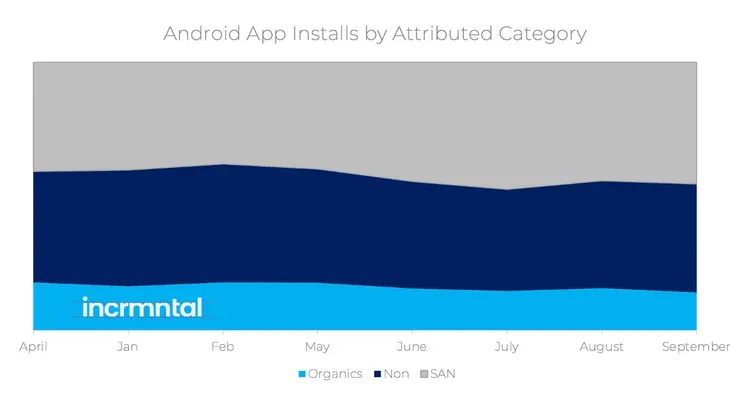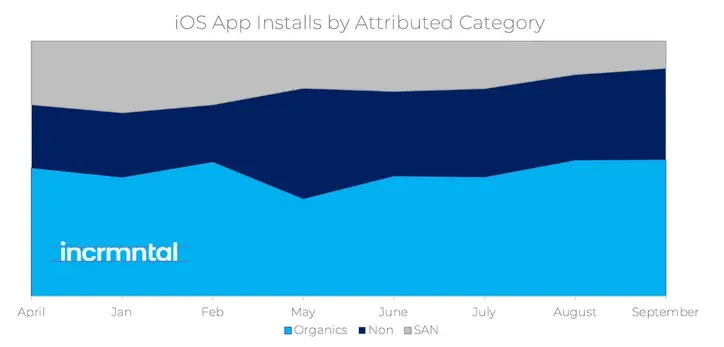Platform
Use Cases
Many Possibilities. One Platform.
AI and Automation
The Always-on Incrementality Platform
Solutions
Teams
Built for your whole team.
Industries
Trusted by all verticals.
Mediums
Measure any type of ad spend
Use Cases
Many Possibilities. One Platform.
AI and Automation
The Always-on Incrementality Platform
Teams
Built for your whole team.
Industries
Trusted by all verticals.
Mediums
Measure any type of ad spend

During WWDC2020, Apple announced the deprecation of the IDFA with announcing App Tracking Transparency and the updated privacy centric attribution framework offered with SKAdNetwork2.0
We saw this announcement as a game changer. Marketing measurement will change forever.
We wrote about the expected benefits of SKAdNetwork calling out the fact that this move could eliminate fraud, forcing marketers to market like a marketer, meaning that they would need to come up with new ways to engage audiences assuming that users would not allow tracking. Leading marketers to make more strategic decisions rather than base their marketing strategy on last-touch attribution.
One of the other points we were happy about was that SKAdNetwork would put an end to self attributing ad platforms.
Apple delayed the launch of ATT until iOS14.5 (released on April 26th), but it wasn’t until iOS14.6 (released on May 24th) that Apple pushed the new version to all iOS users.
Within 30 days, iOS14.5+ OS was active with over 80% of iOS users.
Many in the industry claimed that ATT would create a level playing field, allowing ad networks who were not self attributing to be able to compete with the claimed conversions.
However – What we see in the data is a different story.
(Source: Branch.io)
The following graphs represent app developers advertising their apps globally. This analysis represents ~50% gaming apps and ~50% non gaming apps.
The sample size is 178,858,816 installs across Android, and 278,178,402 installs across iOS, over the timeframe of 8 months.
The GEO distribution for these are: N. America (42%), Europe (31%), APAC (17%), LATAM (10%)
We broke the data into the following groups:

For Android, the results are relatively flat. One could claim that the SANs are pushing harder to over-attribute on Android devices, to compensate for the revenue lost due to Apple’s changes.
Eric Seufert quantified Facebook’s potential loss at $25bn – therefore, it could be that Facebook and the other SANs pushed harder to claim attribution across Android devices, yet were unaffected by Apple.
It’s important to know that one of the fastest growing SANs – does not operate on Android, and that is Apple Search Ads.

The graph for iOS shows a completely different picture – the SANs are losing out attributed conversions to both the non self attributing platforms and to to organics.
At INCRMNTAL, we do still see the value in the spend across SANs – even without attribution data – but as most advertisers are so used to making (wrong) decisions based on attribution reporting – the ad networks and organics are winning credit where credit is not due.
SKAdNetwork conversions only represent a fraction of all attributed conversions we see. The largest attribution companies made deliberate decisions to continue fingerprinting users for the purpose of attribution, despite Apple’s specific policies.
Companies equipped with INCRMNTAL are able to overcome these measurement challenges, as the platform we built at its core never relied on user-level data as an input.But rather we focus on the value that is created through conversions based on your overall media spend.
But there are still many app developers out there making misinformed decisions by allocating budgets based on attribution data that is partial or plain wrong.
INCRMNTAL is an always-on incrementality measurement platform. Our software allows marketers to test out incrementality with a push of a button, and get results within seconds, with no need to run any experiments that require you to stop your campaigns. If you want to learn more, visit INCRMNTAL or book a demo today!